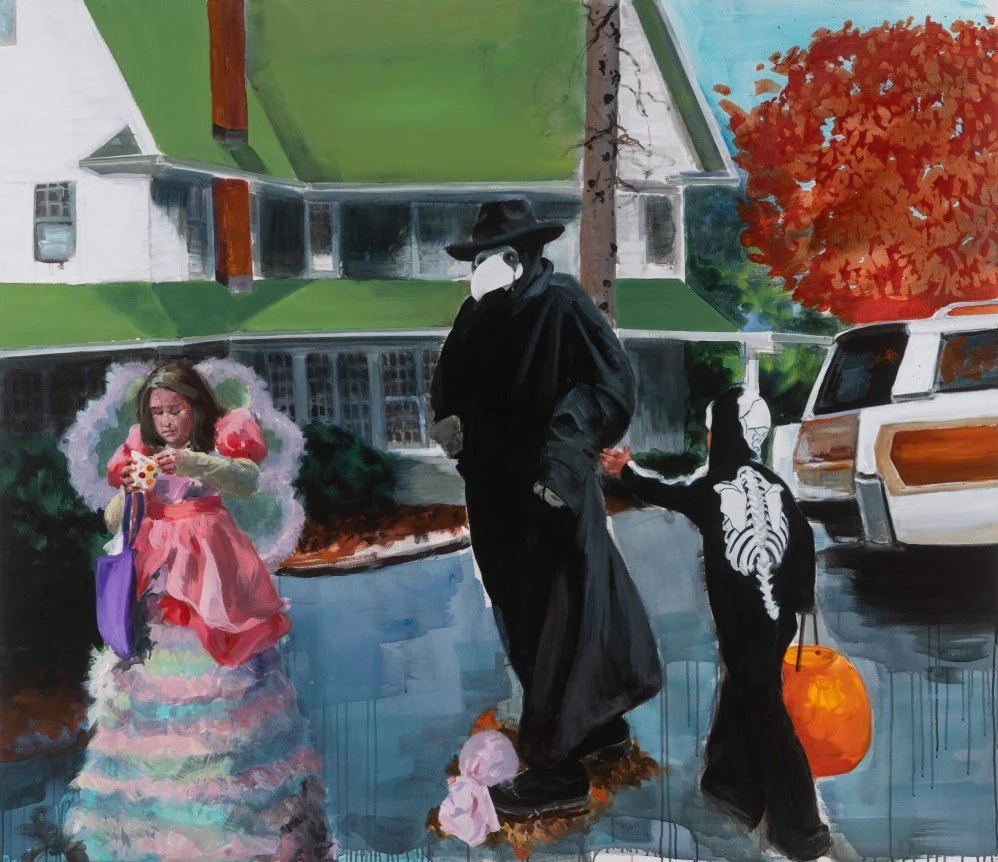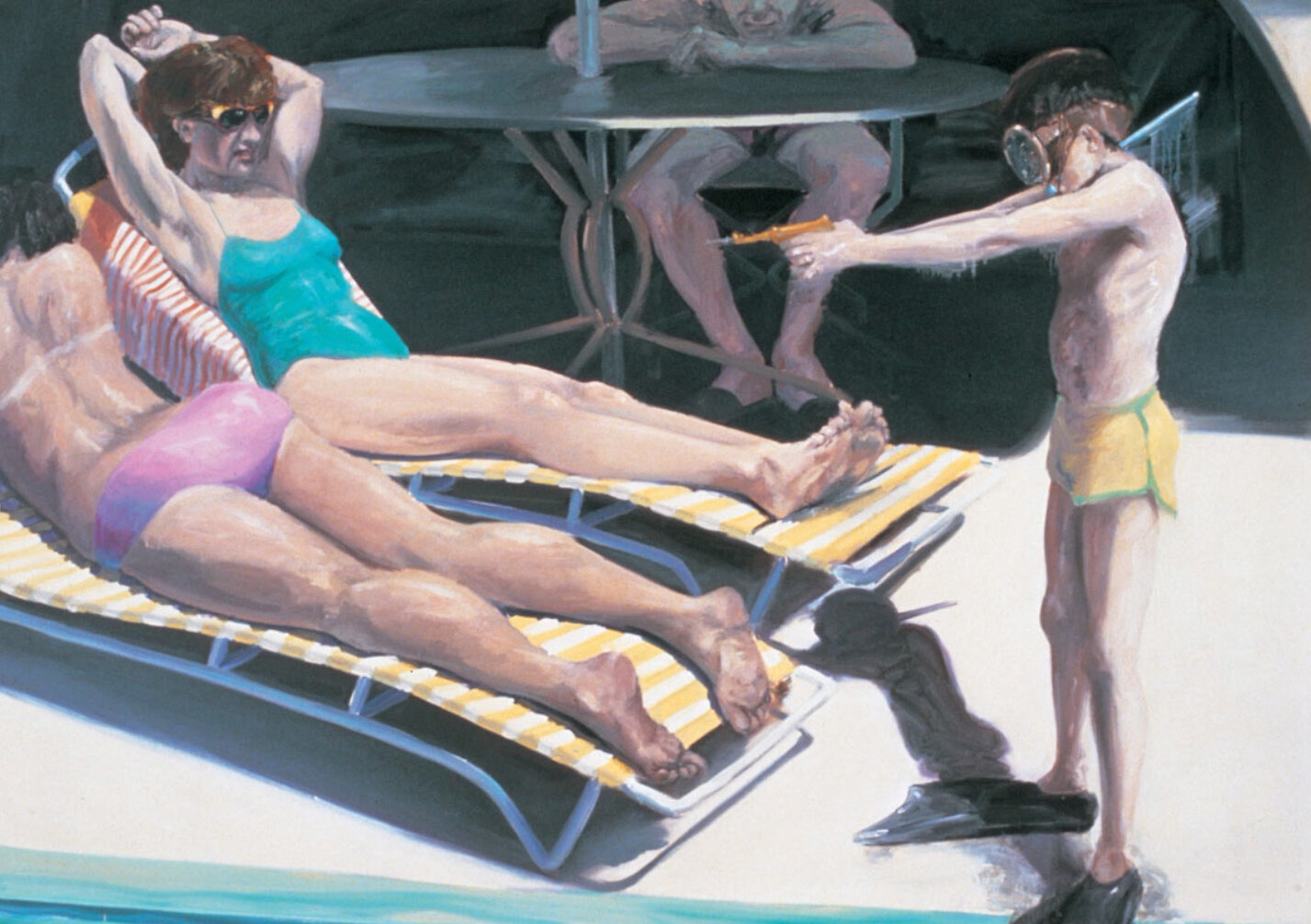Eric Fischl
ERIC FISCHL
Eric Fischl was born in 1948 in New York City and grew up in the suburbs of Long Island. He earned a B.F.A. at the California Institute of the Arts and taught painting at the Nova Scotia College of Art and Design. As a painter and sculptor, his imagery has focused on intimate scenes from middle-class American life that are not usually discussed, involving desire, need, loneliness, and isolation. He focused on figurative painting at a time when it was considered very unfashionable to do so and has ultimately received great acclaim throughout his decades-long career.
In the first video The Artist Profile Archive created on Eric, images of his work from his website were incorporated with footage from his 2009 exhibit, Corrida in Ronda at the Mary Boone Gallery, along with a sit-down interview conducted in his Sag Harbor studio where he is still based. The second film, Eric Fischl: Late America, focuses on his 2017 exhibit at the Skarstedt Gallery’s former Chelsea location, as well as a talk that he gave there on the same day.
Fischl’s work is included in the permanent collections of many major museums throughout the world including the Solomon R. Guggenheim Museum, Guild Hall in East Hampton, High Art Museum, Atlanta, the Institute of Contemporary Arts, London, Louisiana Museum of Modern Art, Denmark as well as the Museum of Modern Art and The Metropolitan Museum of Art, both in New York. He is a co-founder of The Church, a non-profit arts organization in Sag Harbor, NY.
“The struggle is to get to that place where the thing that you do is you, and nobody can take that away from you. Whether it’s good or bad, or whether it makes it or doesn’t make it, that’s the process. So I’ve always felt that— stay with what you know. And so what do I know? What I know is the class of people that I grew up with, that I seem to continue to live with. So who are those people? Those are upper-middle-class suburban people with certain kinds of values and attitudes and attachments to the things that surround them, that live lives that are until crises happen, they’re people who have some kind of confidence that the life they’re constructing is of great value. And so they’re that, and I’ve always grown up feeling a much more complicated relationship to those feelings and to those ambitions. So there’s often times a kind of — I don’t want to say anger and mean anger, but there’s an anger that is underlying. It’s an anger that’s a spiritual anger. It’s something where the existential is not acknowledged in this lifestyle.
But I don’t want people to look at these paintings and see anger. What I want them to see is real people who are painted fairly. That they are real. They feel like they are real people. They’re having internal thoughts. They’re having internal needs. You look at each one of these paintings and you can go inside them, sort of see the tentative nature, the awkwardness, the uncertainty, or the lack, the oblivion.”
Eric Fischl, 2009 - 06:01
Eric Fischl - Late America 9:05
“An artist makes work out of love. And what they’re looking for is love in return...so you make this work as an expression of love, which is to say you’re asking for connection, you’re asking for people to feel what you feel, to see through your eyes and to feel connected in a deep and meaningful way. So you make this work and someone pays you for it. They say they love it, want it and want to possess it. But no one can pay you enough for the love that you’re looking for.”


















